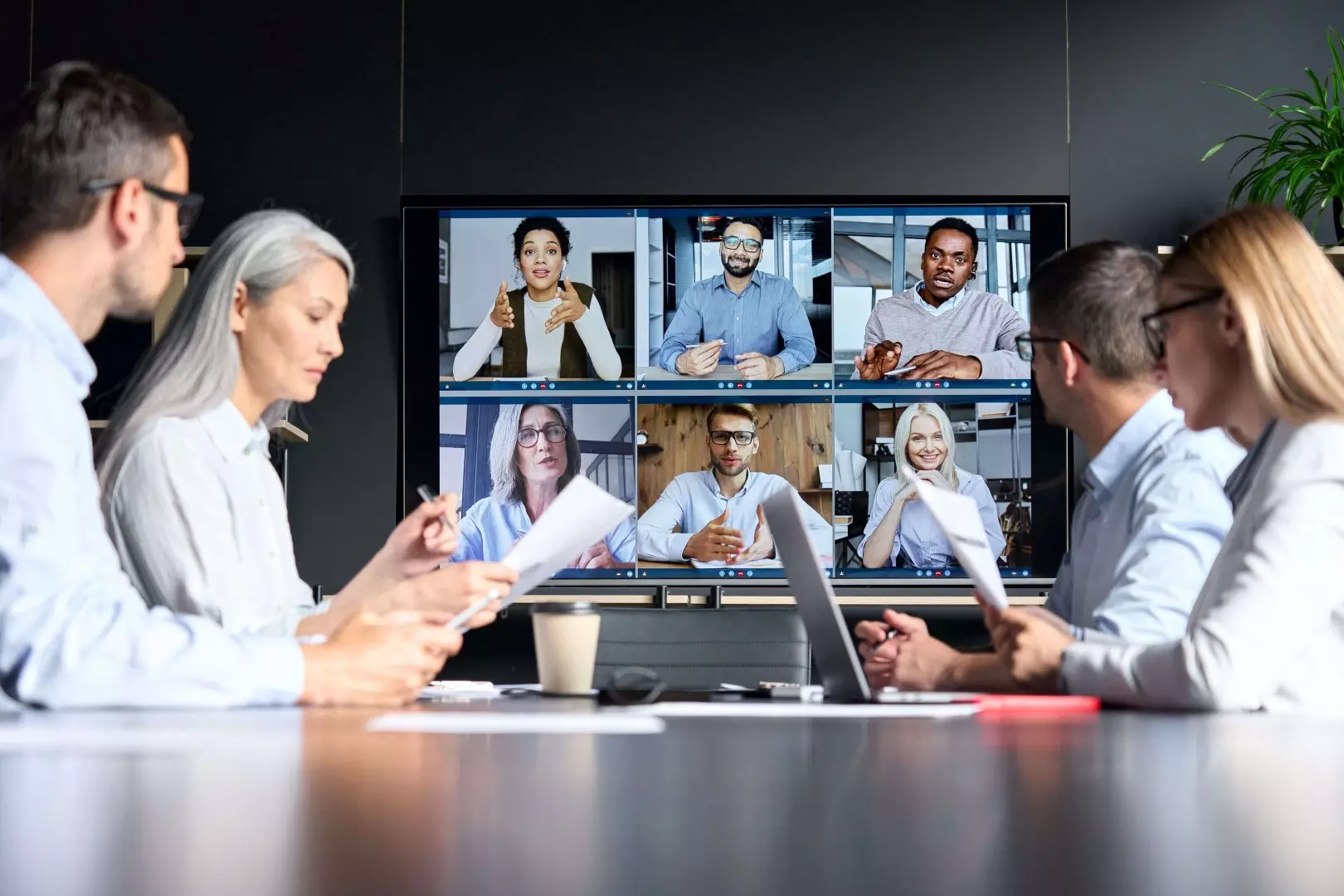Comments
- No comments found

Work as we know it is undergoing a seismic transformation.
The once-familiar landscape is evolving at an unprecedented pace, and with it comes the rise of flexible employment models. This article explores this transformative trend in-depth, peeling back the layers to reveal the multifaceted world of flexible employment.
As businesses around the globe adapt to these new paradigms, we delve into various dimensions of this phenomenon. From embracing the gig economy to crafting seamless tech support for remote teams, from designing flexible workspaces to fostering a culture of lifelong learning, each aspect is a brushstroke on the canvas of the future of work. So, let’s embark on this journey together, uncovering the intricacies and opportunities that flexible employment models present.

With its freelancers, contractors, and short-term projects, the gig economy has ushered in a new era of work. This shift challenges traditional employment norms, allowing professionals to chart their paths. While the gig economy grants unparalleled flexibility, it also brings uncertainties, such as income volatility and inconsistent work.
For businesses, tapping into this diverse talent pool requires innovative recruitment, collaboration, and project management approaches. The rise of remote work has further fuelled the gig economy’s growth, enabling businesses to access global talent seamlessly. As the gig economy reshapes work dynamics, embracing this paradigm necessitates reimagining organisational structures and integrating agile work strategies.
Hybrid work models, combining in-office and remote work, offer a dynamic solution to modern work preferences. This approach recognises that flexibility enhances job satisfaction and productivity. Employees can choose their work environments based on tasks and preferences, driving increased engagement.
However, implementing hybrid models necessitates comprehensive communication strategies and technological investments to ensure seamless collaboration across physical and virtual spaces. Leaders play a pivotal role in cultivating a culture of trust, accountability, and results rather than mere presence. Crafting policies that promote a harmonious blend of in-person and remote work empowers employees and positions organisations at the forefront of workplace evolution.
The remote work revolution has accelerated the need for robust tech support for employees. Companies must establish comprehensive tech assistance systems with a significant portion of the workforce working from home. Remote troubleshooting strategies, real-time assistance, and proactive measures ensure employees remain connected and productive. For instance, you can offer remote assistance for your teams by using TSplus Remote Support’s remote desktop control service. The IT team can access an employee’s computer while working from home.
The reliance on virtual communication and collaboration tools further underscores the significance of reliable tech support. An organisation’s ability to provide seamless technical assistance contributes to operational efficiency and employee satisfaction and engagement. As the virtual landscape expands, robust tech support is a pillar of successful remote work adoption.
Technology is the linchpin of successful flexible work models. Virtual collaboration tools, video conferencing platforms, and project management software bridge geographical gaps, enabling teams to work seamlessly. However, the widespread use of technology can lead to communication fatigue and challenges in maintaining meaningful connections. Striking a balance between virtual interactions and face-to-face engagement is essential.
Organisations must provide training on using collaboration tools effectively and set clear guidelines for digital communication. Leveraging technology for virtual collaboration also necessitates a shift in mindset—from mere task completion to building relationships and fostering a sense of camaraderie. By harnessing technology as an enabler of connection and productivity, organisations empower their teams to collaborate efficiently in an increasingly digital landscape.
The transition to flexible employment models brings forth a complex legal terrain. Employment contracts, data protection, and taxation considerations require meticulous navigation. Adhering to legal obligations protects both employees’ rights and organisations’ interests. This landscape becomes intricate as companies operate across jurisdictions with varying labour laws and regulations.
Ensuring transparent communication, accurate contracts, and compliance safeguards the employment relationship and mitigates potential disputes. Beyond legal obligations, organisations must also address ethical considerations and privacy concerns. As remote and flexible work becomes standard, organisations must evolve their policies to embrace the nuances of a dispersed workforce. This shift calls for a proactive approach that prioritises legal compliance and safeguards the interests of all stakeholders.
Upskilling and reskilling have become paramount in an era of rapid technological advancements. The dynamic nature of work demands that employees continually enhance their skill sets to remain relevant. Organisations that invest in lifelong learning cultivate a more adaptable workforce and foster a culture of growth and innovation.
As traditional job roles evolve and new roles emerge, individuals need access to resources that enable them to acquire new skills. This requires a shift in mindset—from seeing education as an event to embracing it as a continuous journey. Businesses must offer training opportunities, mentorship programs, and pathways for professional development. Equipping employees with the tools to upskill and reskill ensures they are prepared to tackle evolving challenges and contribute meaningfully to their roles and organisations.
Flexibility in work arrangements must coexist harmoniously with employee wellbeing. The allure of remote work must not overshadow the importance of maintaining work-life balance and mental health. The shift to remote work can blur boundaries, leading to burnout and isolation. Organisations play a pivotal role in prioritising wellbeing by fostering a supportive environment.
Encouraging employees to set boundaries, take breaks, and engage in social interactions enhances job satisfaction. Mental health resources and regular check-ins are essential for cultivating a healthy work culture. Leaders, in particular, must exemplify work-life balance to set a positive example for their teams. Organisations create an environment where employees can thrive by fostering a culture that values wellbeing alongside productivity.
The flexible work landscape necessitates a redefinition of leadership approaches. Managing remote and hybrid teams requires leaders to be adaptable, empathetic, and effective communicators. Traditional leadership styles focusing on physical presence must give way to outcome-based leadership. Building trust and camaraderie within virtual teams demands intentional efforts, such as regular virtual meetings, transparent communication, and creating opportunities for social interactions.
Recognising achievements and providing constructive feedback become vital components of leading remote teams. Leaders must ensure in-person and remote team members experience equitable collaboration and opportunities in hybrid settings. This shift underscores the importance of emotional intelligence and strong interpersonal skills in leadership as leaders become orchestrators of virtual and physical team dynamics.
As workplaces evolve, physical spaces must mirror the flexibility inherent in modern work models. Designing workspaces that accommodate diverse work styles while fostering collaboration is paramount. Adaptable office layouts, multipurpose areas, and technology-equipped spaces create an environment that supports the needs of hybrid and remote workers. Natural light, ergonomic furniture, and breakout zones enhance employee comfort and wellbeing.
Technology is pivotal in enabling seamless transitions between in-person and remote work. Virtual meeting rooms, cloud-based collaboration tools, and IoT-enabled spaces facilitate communication and teamwork. By investing in flexible physical designs, organisations signal their commitment to a future where employees can work efficiently and comfortably regardless of their chosen work location.

The path ahead is marked by change and uncertainty. The emerging flexible employment models serve as guiding lights through this dynamic landscape. Embracing change requires a mindset shift—a willingness to adapt, innovate, and reimagine how work is done. The future of work is a canvas on which organisations and individuals can paint their aspirations and values. It’s about recognising that flexible work is not just a trend but a strategic imperative.
Felix is the founder of Society of Speed, an automotive journal covering the unique lifestyle of supercar owners. Alongside automotive journalism, Felix recently graduated from university with a finance degree and enjoys helping students and other young founders grow their projects.
Leave your comments
Post comment as a guest